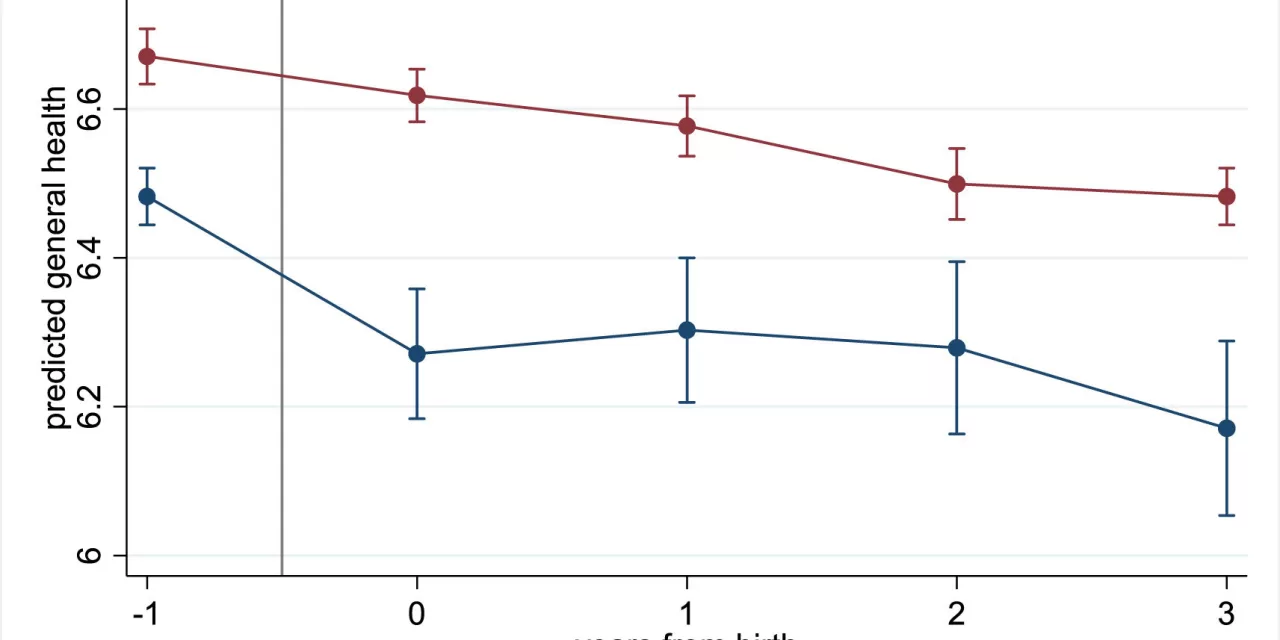A groundbreaking study by Anna Barbuscia at the University of the Basque Country (UPV/EHU) has revealed that the physical and mental health decline experienced by women after childbirth is significantly greater for those with unplanned pregnancies. The research, published in Social Science & Medicine, provides new insights into the long-term effects of unintended pregnancies, offering a novel approach by analyzing pre- and post-natal data.
Using data from more than 11,500 French mothers, the study found that while the number of unplanned pregnancies has decreased globally, an estimated 20% of pregnancies still occur unintentionally. Despite the increasing availability of contraception, the study underscores the ongoing health challenges faced by women whose pregnancies are unplanned.
A Sharp Health Decline for Younger Mothers
Barbuscia’s research revealed that the decline in health following childbirth is notably more pronounced for women with unplanned pregnancies, particularly for younger mothers. In the first two years after childbirth, women under 30 experienced a sharper health decline compared to their older counterparts. The study suggests that younger women may face additional stress due to emotional or financial instability, with many still in school or lacking job security.
“Unexpected pregnancies can be more destabilizing for younger women because their emotional and employment situations are often more precarious,” Barbuscia explained. “However, they tend to recover more quickly than older mothers, likely due to their better initial health.”
Differentiating Between Unwanted and Premature Pregnancies
The research also made an important distinction between unplanned pregnancies and those that occur earlier than expected. Barbuscia noted that while not wanting a child at all or not wanting more children is distinct from a pregnancy that occurs ahead of a planned schedule. The study found that unwanted pregnancies—those where women did not intend to have children at all—tended to lead to a greater negative impact on maternal health.
Mental Health Findings Challenge Assumptions
While the physical health effects of unplanned pregnancies were more severe, the study also yielded unexpected findings regarding mental health. Contrary to the researchers’ initial hypothesis, the risk of depressive symptoms post-childbirth was not higher for women with unplanned pregnancies. Although these women exhibited more psychological effects before giving birth, the study showed that the levels of mental health decline after childbirth were no more severe than in women with planned pregnancies.
“We found that the risk of depression after childbirth was not higher in women with unplanned pregnancies,” Barbuscia said. “While they were more prone to psychological challenges before birth, the levels were similar to those of mothers whose pregnancies were planned.”
Longitudinal Approach Provides New Insights
A key strength of the study lies in its longitudinal design. Unlike previous research, which relied on retrospective data (gathered after childbirth), Barbuscia’s team analyzed both pre- and post-birth data from participants. This allowed them to gain a clearer understanding of how unplanned pregnancies specifically affected women’s health, as opposed to other socio-economic factors such as employment or family status.
“By collecting data before and after childbirth, we were able to better align the results with reality,” Barbuscia explained. “Previous studies, which only gathered data post-birth, may have led women to revise their initial plans or feelings, skewing the findings.”
The longitudinal nature of the study allowed for more accurate conclusions about the direct impact of unplanned pregnancies on health, separating it from other influences like changes in family or work situations.
Implications for Policy and Support
The study’s findings have significant implications for policy and healthcare support for new mothers, particularly those facing unplanned pregnancies. Addressing the health challenges faced by women with unintended pregnancies, especially younger mothers, could improve maternal health outcomes and guide future family planning and health support initiatives.
Further Reading: Barbuscia, A. et al. (2024). “Unplanned births and their effects on maternal Health: Findings from the Constances Cohort.” Social Science & Medicine. DOI: 10.1016/j.socscimed.2024.117350.












